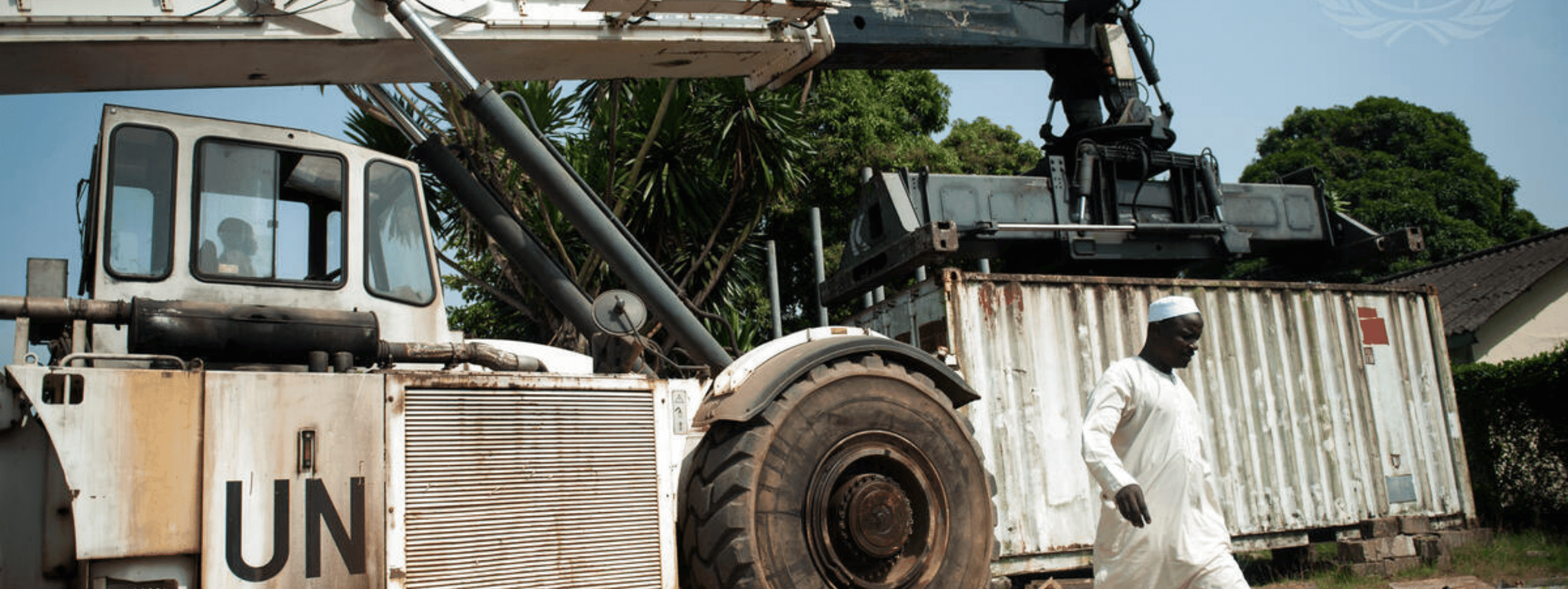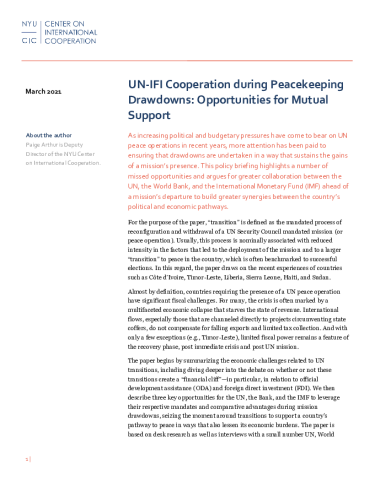As increasing political and budgetary pressures have come to bear on UN peace operations in recent years, more attention has been paid to ensuring that drawdowns are undertaken in a way that sustains the gains of a mission’s presence. This policy briefing highlights a number of missed opportunities and argues for greater collaboration between the UN, the World Bank, and the International Monetary Fund (IMF) ahead of a mission’s departure to build greater synergies between the country’s political and economic pathways.

The brief begins by summarizing the economic challenges related to UN transitions, including diving deeper into the debate on whether or not these transitions create a “financial cliff”—in particular, in relation to official development assistance and foreign direct investment.
We then describe three key opportunities for the UN, the Bank, and the IMF to leverage their respective mandates and comparative advantages during mission drawdowns, seizing the moment around transitions to support a country’s pathway to peace in ways that also lessen its economic burdens and supports key reforms. These opportunities include:
- Generating better alignment and planning between the three institutions in transition moments, with a focus on maintaining and strengthening peacebuilding gains while also seeking to unlock broader economic opportunities
- Collaborating across areas of expertise to assess budgetary and resourcing gaps that may prove crippling to a country’s emergence from fragility, if not addressed
- Activating levers for additional peacebuilding financing and to support reform, from the UN’s PBC and multi-partner trust funds, to IMF support to improve access to financial markets, to the sensitive use of the World Bank’s new FCV envelopes in IDA19
The brief is based on desk research as well as interviews with a small number UN, World Bank, and IMF representatives involved in the transition process in Timor-Leste, Côte d’Ivoire, and Liberia, as well as the expected transition in the Democratic Republic of the Congo.
Read the full policy briefing: UN-IFI Cooperation during Peacekeeping Drawdowns: Opportunities for Mutual Support


